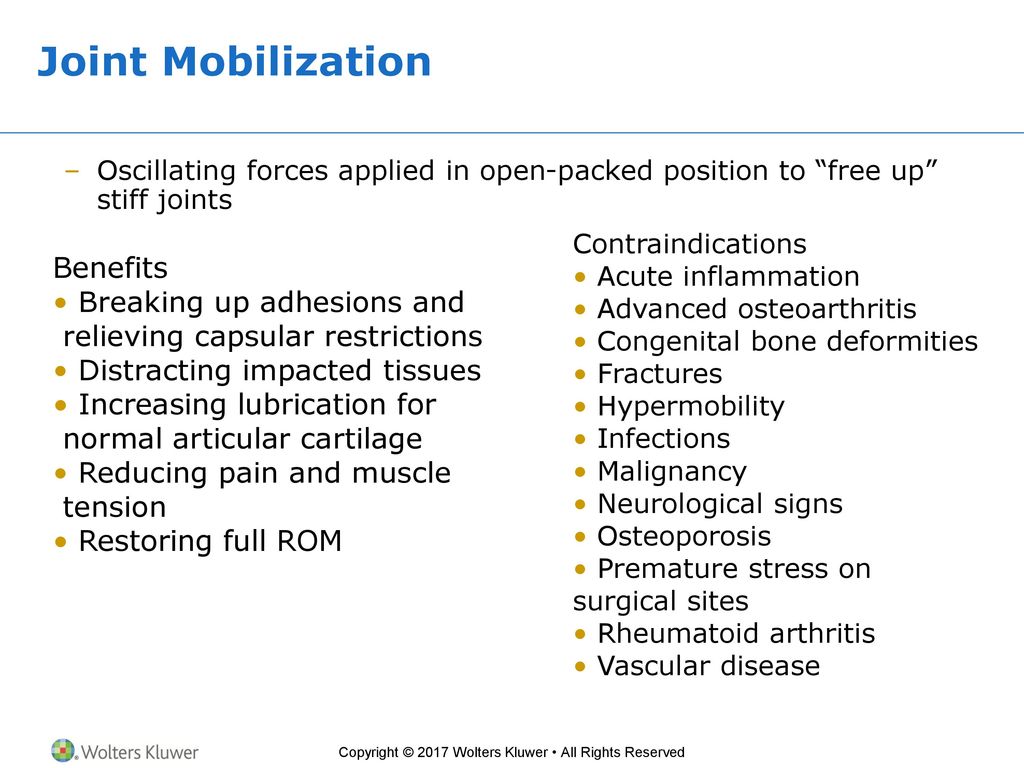
Unlocking Flexibility: The Power of Joint Mobilization Benefits
Joint mobilization is a therapeutic technique that plays a crucial role in enhancing the flexibility and functionality of various joints throughout the body. This article explores the numerous benefits associated with joint mobilization, shedding light on how this approach contributes to overall joint health.
Understanding Joint Mobilization
Joint mobilization is a manual therapy technique commonly performed by trained physiotherapists or chiropractors. It involves skilled passive movement of a joint in a specific direction and at varying speeds. The goal is to improve joint mobility, reduce pain, and optimize function.
Pain Reduction and Improved Comfort
One of the primary benefits of joint mobilization is the alleviation of pain and discomfort associated with various joint conditions. By gently manipulating the joint, therapists can stimulate the release of endorphins, the body’s natural painkillers, providing relief to individuals experiencing joint-related pain.
Enhanced Joint Range of Motion
Joint mobilization aims to enhance the range of motion within a joint. This is particularly beneficial for individuals with conditions like osteoarthritis or those recovering from injuries. By carefully applying controlled force, therapists can help restore and improve the joint’s natural movement.
Preventing Joint Stiffness and Contractures
Joint stiffness can occur due to various reasons, including prolonged immobilization or certain medical conditions. Joint mobilization helps prevent stiffness and contractures by promoting the circulation of synovial fluid, which nourishes and lubricates the joint, keeping it supple and healthy.
Improved Synovial Fluid Circulation
The synovial fluid within joints plays a crucial role in providing nutrients to the joint cartilage and facilitating smooth movement. Joint mobilization aids in the circulation of synovial fluid, promoting joint health and reducing the risk of degenerative conditions.
Targeted Treatment for Specific Conditions
Joint mobilization is a versatile technique that can be tailored to address specific joint conditions. Whether it’s addressing a frozen shoulder, managing arthritis-related symptoms, or assisting in post-surgical recovery, therapists can customize joint mobilization to suit individual needs.
Muscle Relaxation and Tension Release
Tight muscles surrounding a joint can contribute to discomfort and restricted movement. Joint mobilization helps relax these muscles by promoting blood flow and releasing tension. This can be particularly beneficial for individuals with muscle spasms or chronic muscle tightness.
Enhanced Neuromuscular Communication
Joint mobilization contributes to improved neuromuscular communication. By stimulating receptors within the joint and surrounding tissues, this technique enhances the body’s awareness of joint position, promoting better coordination and stability.
Complementary Approach to Rehabilitation
In rehabilitation settings, joint mobilization often complements other therapeutic interventions. Whether used alongside exercises, stretches, or modalities like heat or ice, joint mobilization enhances the overall effectiveness of a rehabilitation program.
Empowering Individuals in Their Journey to Wellness
By experiencing the benefits of joint mobilization, individuals gain a sense of empowerment in their wellness journey. Improved joint function not only enhances daily activities but also fosters a proactive approach to joint health and overall well-being.
To explore the transformative benefits of joint mobilization, visit Joint Mobilization Benefits. Discover how this therapeutic technique can enhance flexibility, reduce pain, and contribute to the overall health of your joints.
